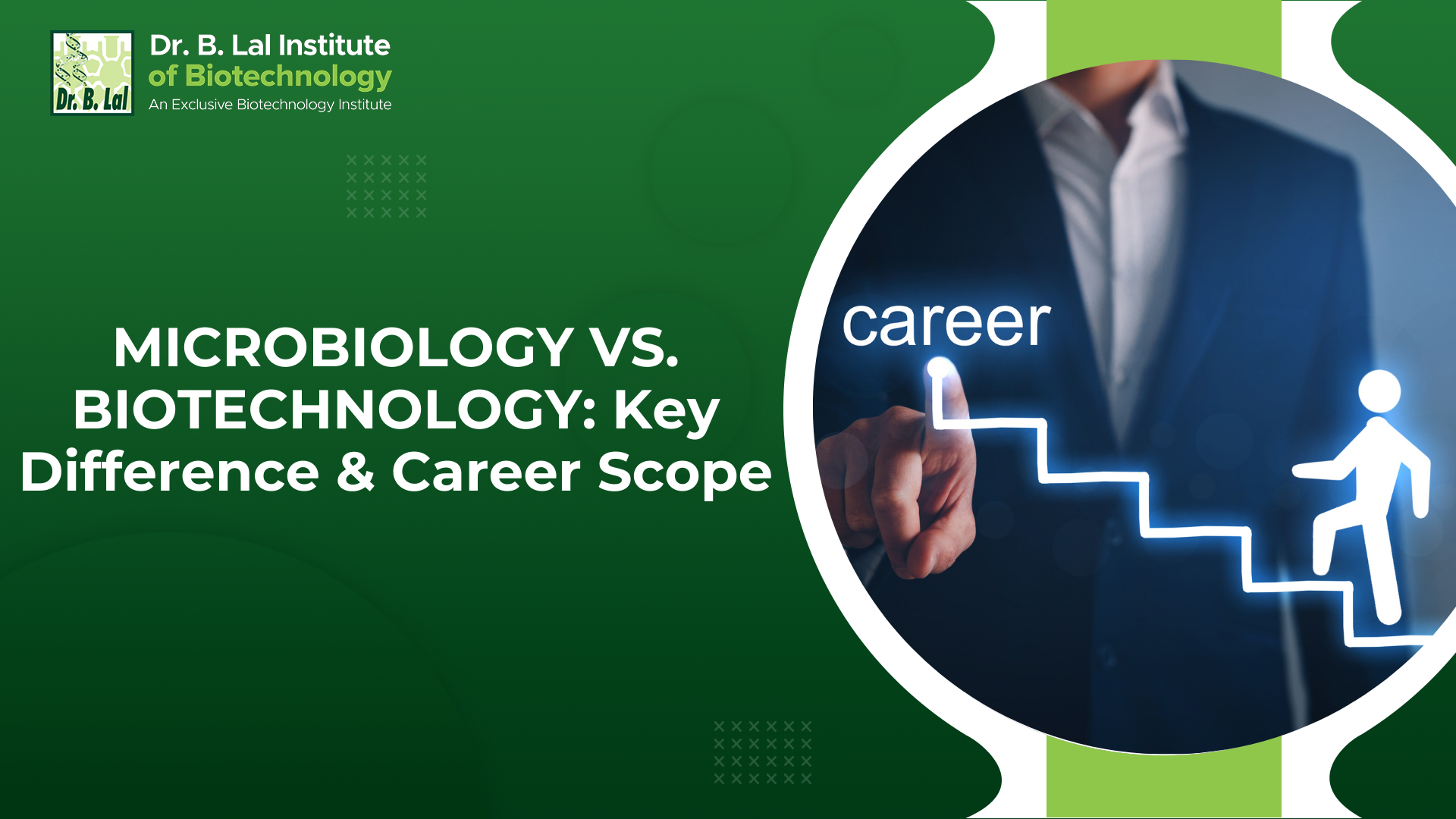
Microbiology vs Biotechnology: Key Difference & Career Scope
Microbiology and biotechnology go hand in hand, working together to unlock secrets in biology. Though they're closely related, they have their own unique focuses and career prospects. This blog breaks down their differences and highlights the exciting job opportunities in each field.
What is Microbiology?
Microbiology is about studying tiny living things like bacteria, viruses, fungi, and protozoa. It's all about figuring out how these little guys survive, grow, and interact with their surroundings. Microbiologists dive deep into understanding their biology at the tiniest levels, exploring how they affect ecosystems, human health, and more.
What is Biotechnology?
Biotechnology is all about using living things or biological systems to make useful stuff. It includes things like changing genes, using DNA tech, and even old-school methods like breeding. Overall, biotechnology creates technologies and products to make life better for us and our planet.
Key Differences Between Microbiology and Biotechnology
- Microbiology delves into the study of tiny organisms invisible to the naked eye, prioritizing research. In contrast, Biotechnology applies this microbial understanding to solve real-world problems and craft inventive solutions.
- Biotechnology uses fancy tools like genetic engineering and bioprocessing to change living things for humans. Microbiology also uses these tools, but mainly to learn and discover, not for practical use.
- In microbiology, you could work in research or teaching, studying diseases or environmental microbes. Biotechnologists usually work in companies, creating healthcare, agriculture, or environmental products.
- Microbiologists can explore various fields like healthcare, agriculture, and the environment. In healthcare, they focus on identifying pathogens and creating vaccines. In agriculture, their work revolves around boosting crop resilience and productivity.
- In the environmental sector, they tackle problems such as pollution. Additionally, academic and research institutions provide avenues to delve into theoretical concepts or apply microbiology in innovative ways.
Career Scope in Biotechnology
Biotechnologists can pursue various career paths. They work in pharmaceuticals, developing drugs and vaccines. In agriculture, they enhance crop yields and sustainability through genetic engineering. In environmental science, they create biofuels and improve bio-remediation processes. Additionally, there are opportunities in the commercial sector, such as product development, regulatory affairs, and technology transfer.
Career Scope in Microbiology
Microbiologists play crucial roles across various fields. They investigate infectious diseases, develop antibiotics, and enhance treatments in healthcare. Within the food industry, they ensure food safety and quality while innovating with products like probiotics.
Environmental efforts involve controlling pollution and managing waste through bioremediation. Research opportunities span microbial genetics and ecosystem studies, driving scientific progress. Additionally, roles in regulation and biotech involve ensuring standards, crafting policies, and pioneering biotech advancements.
Dr. B Lal Institute of Biotechnology (BIBT)
Picking the right place to start your career in microbiology or biotechnology is super important. At Dr. B Lal Institute of Biotechnology (BIBT), you get top-notch education in both areas. BIBT has awesome labs and teachers who are experts in research and industry. They'll give you all the skills and knowledge you need to succeed. Whether you dream of being a microbiologist or a biotechnologist, BIBT gets you ready to tackle the exciting challenges of these fields like a pro!
Conclusion
Microbiology and biotechnology are closely connected, but knowing how they differ can guide your choices for education and career. Dr. B Lal Institute of Biotechnology offers great programs and experienced teachers to kickstart your journey in these fields.
Click to Check B.sc Biotechnology Courses
Explore the differences between microbiology and biotechnology, their career opportunities, and how Dr. B Lal Institute of Biotechnology can help you.
Made it this far? That means you're curious—and we love that! Ready to test your passion for biotechnology? Click below to find out 👇🏻
Biotechnology Aptitude Test




Your email address will not be published. Required fields are marked *